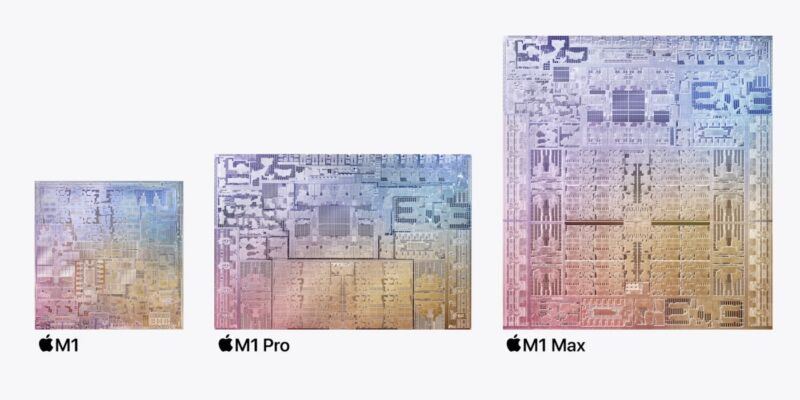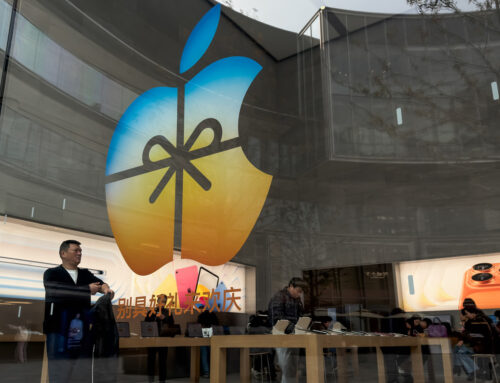
Enlarge / The M1 SoC die compared to M1 Pro and M1 Max.
Apple
Apple has already finalized the second generation of Mac processors, and the third generation is expected to be made with a new 3-nanometer process, according to a report in The Information citing people with direct knowledge of the plans.
The report says that the second-generation chips will use an “upgraded version” of the 5-nanometer process used for the M1, M1 Pro, and M1 Max found in recent Apple Silicon Macs. But unlike those first-generation chips, some of the second-generation chips will have two dies instead of one, allowing for more processor cores.
A second-generation chip with just one die will be included in the long-rumored, redesigned MacBook Air as well as in iPads. That chip is code-named Staten. On the other hand, the MacBook Pro will feature more powerful second-generation chips code-named Rhodes. The second-generation chips have already been finalized and are ready to enter trial production, according to The Information’s sources.
But the sources also say we haven’t seen the end of the first generation. The next Mac Pro’s processor would be part of the generation that began with the M1. Code-named Jade, it will be based on the high-end MacBook Pro’s M1 Max, but it will have two dies instead of one.
The more powerful third-generation processors are code-named Ibiza, Lobos, and Palma. Lobos and Palma are destined for the MacBook Pro and “Mac desktops.” A lower-performance variant code-named Ibiza would head to iPads and the MacBook Air. A future A-series chip for iPhones is also expected to switch to a 3nm process around that time.
Apple’s roadmap projects steady performance improvements over time across all three generations, which are all in active development. But the third generation is said to be a particularly momentous leap.
Much of the report focuses on relative performance compared to Intel’s chips, as Intel leadership has announced its desire to try to win back Apple’s business, either in terms of Apple again using Intel chips in Macs or in terms of Apple becoming a customer of Intel’s chip fabrication business to make Apple-designed chips.
The report speculates that the latter is much more likely than the first, given that Apple’s third-generation chips are expected to outperform the chips Intel itself introduces at that time.






